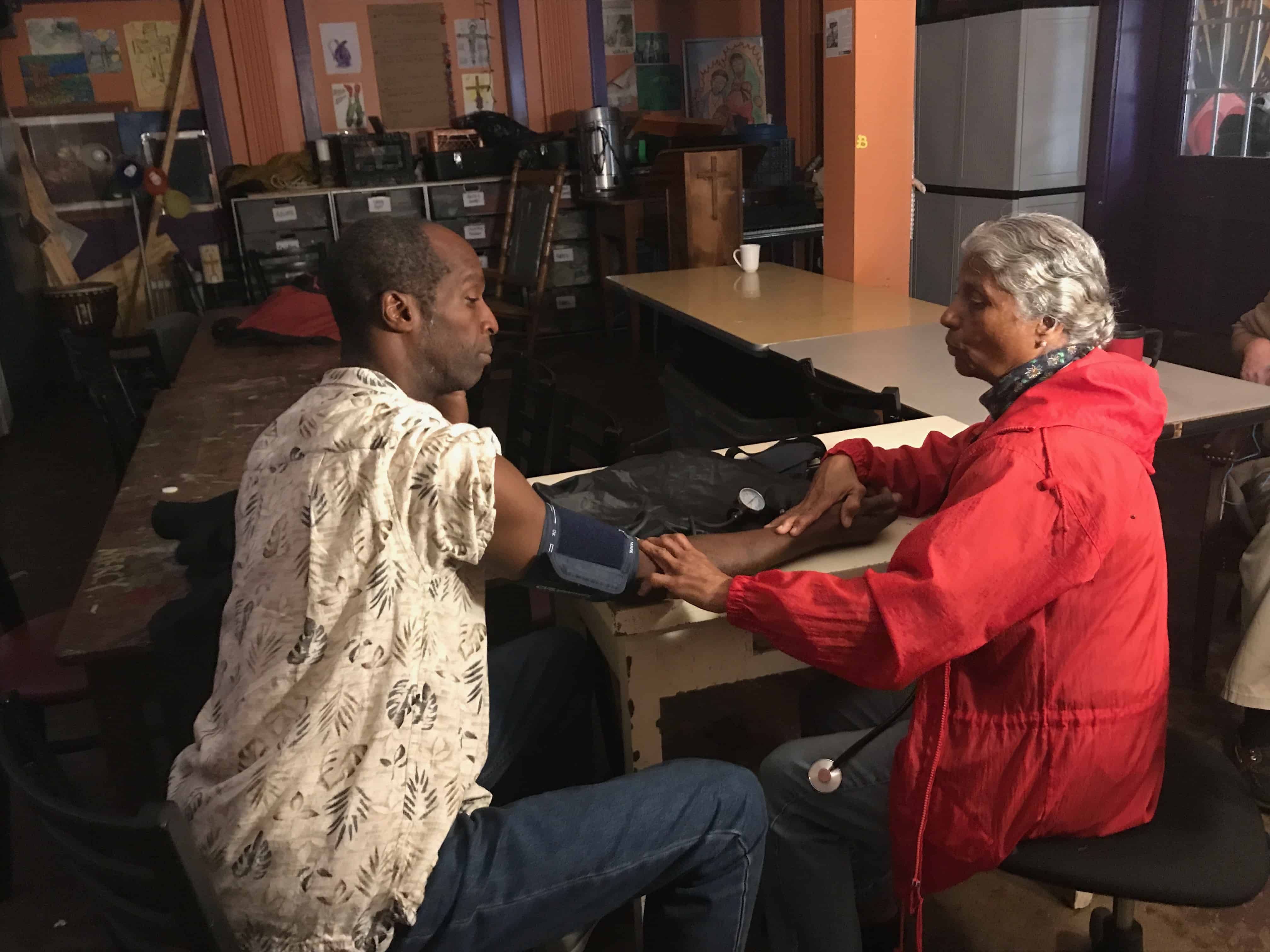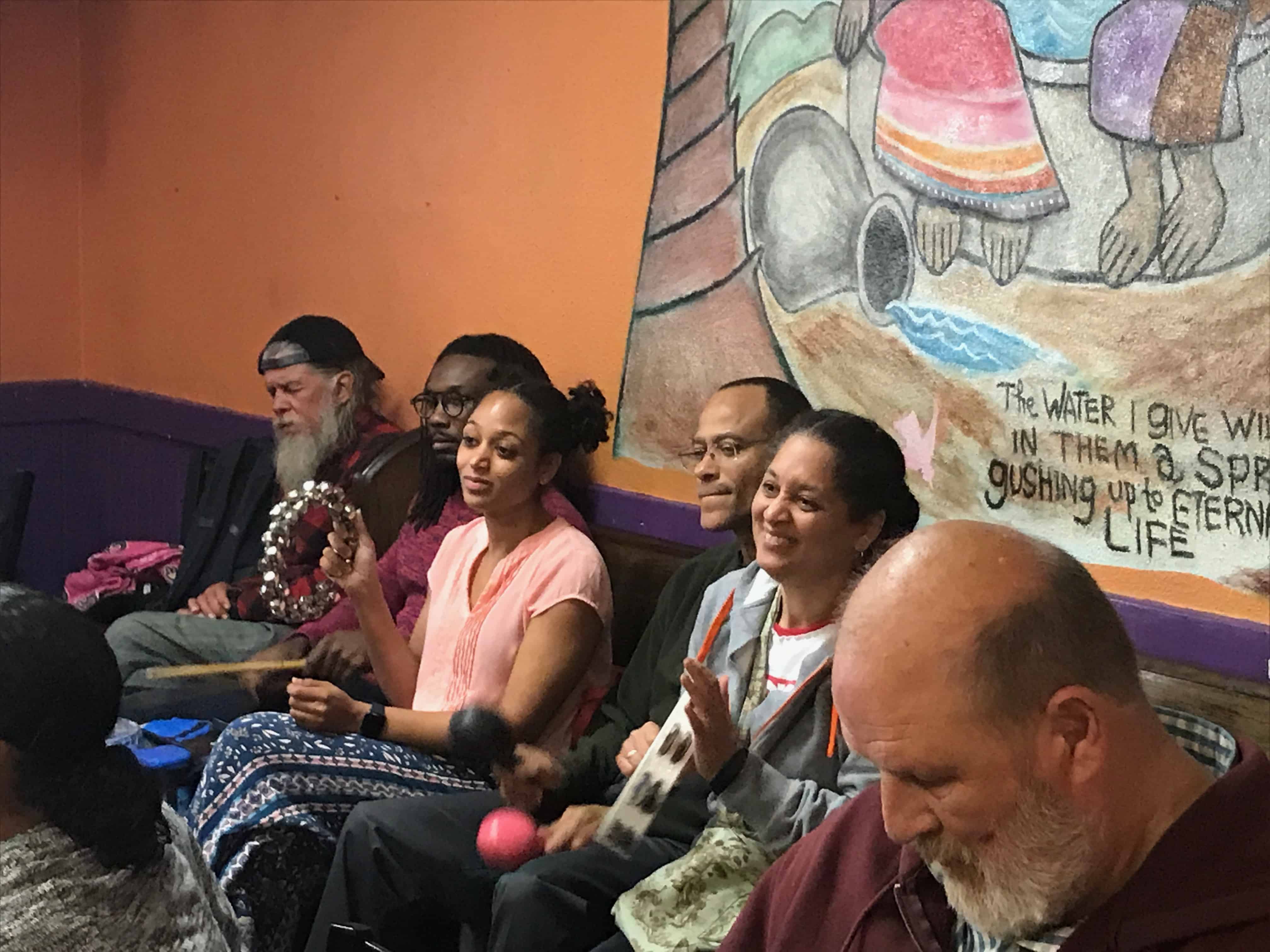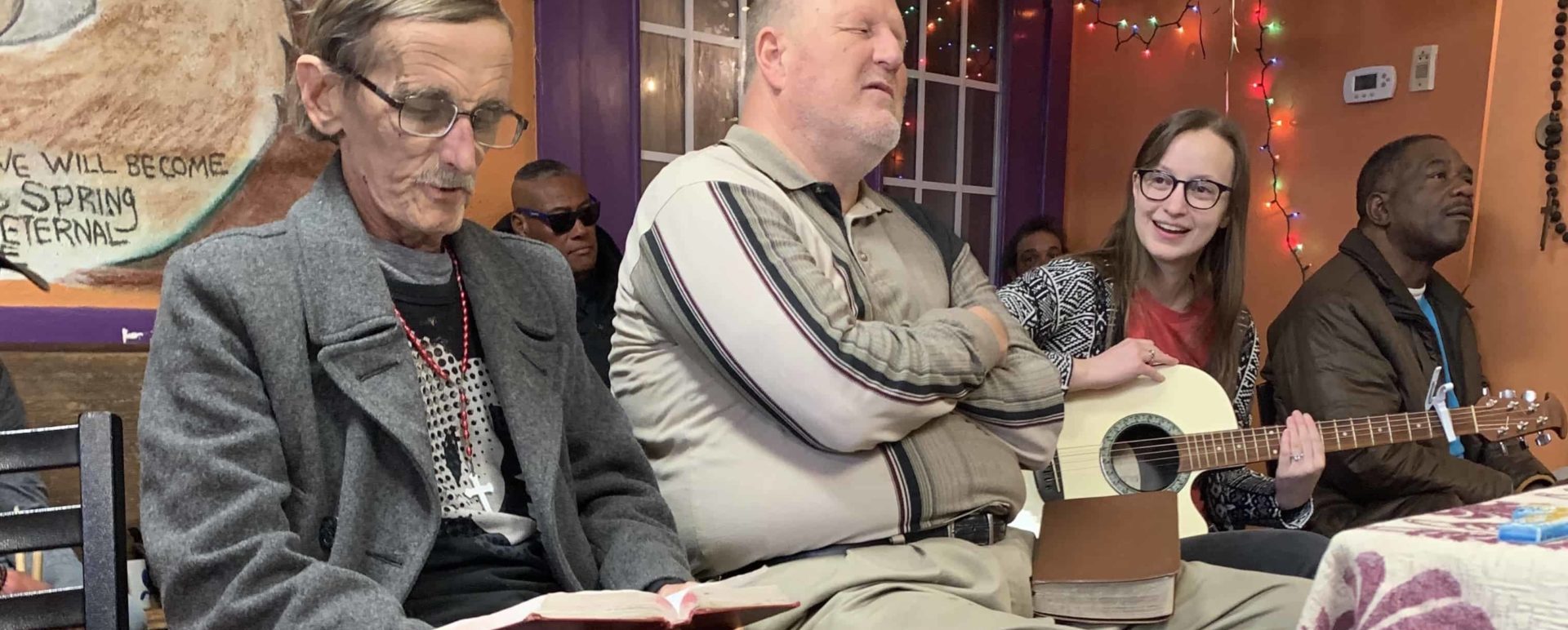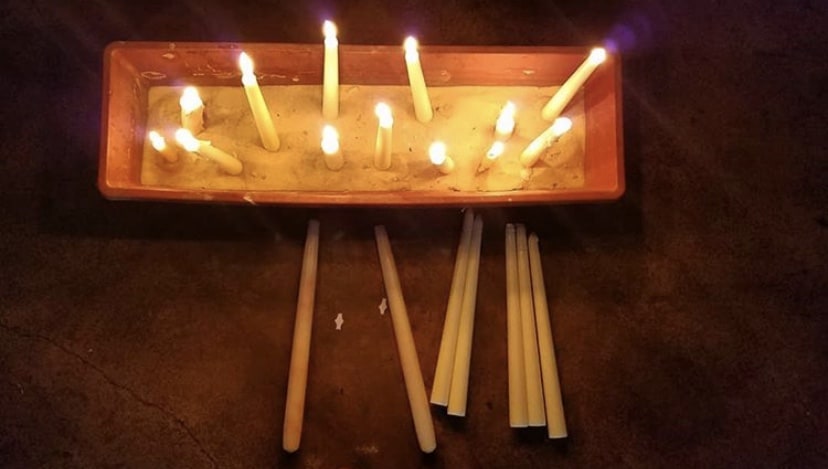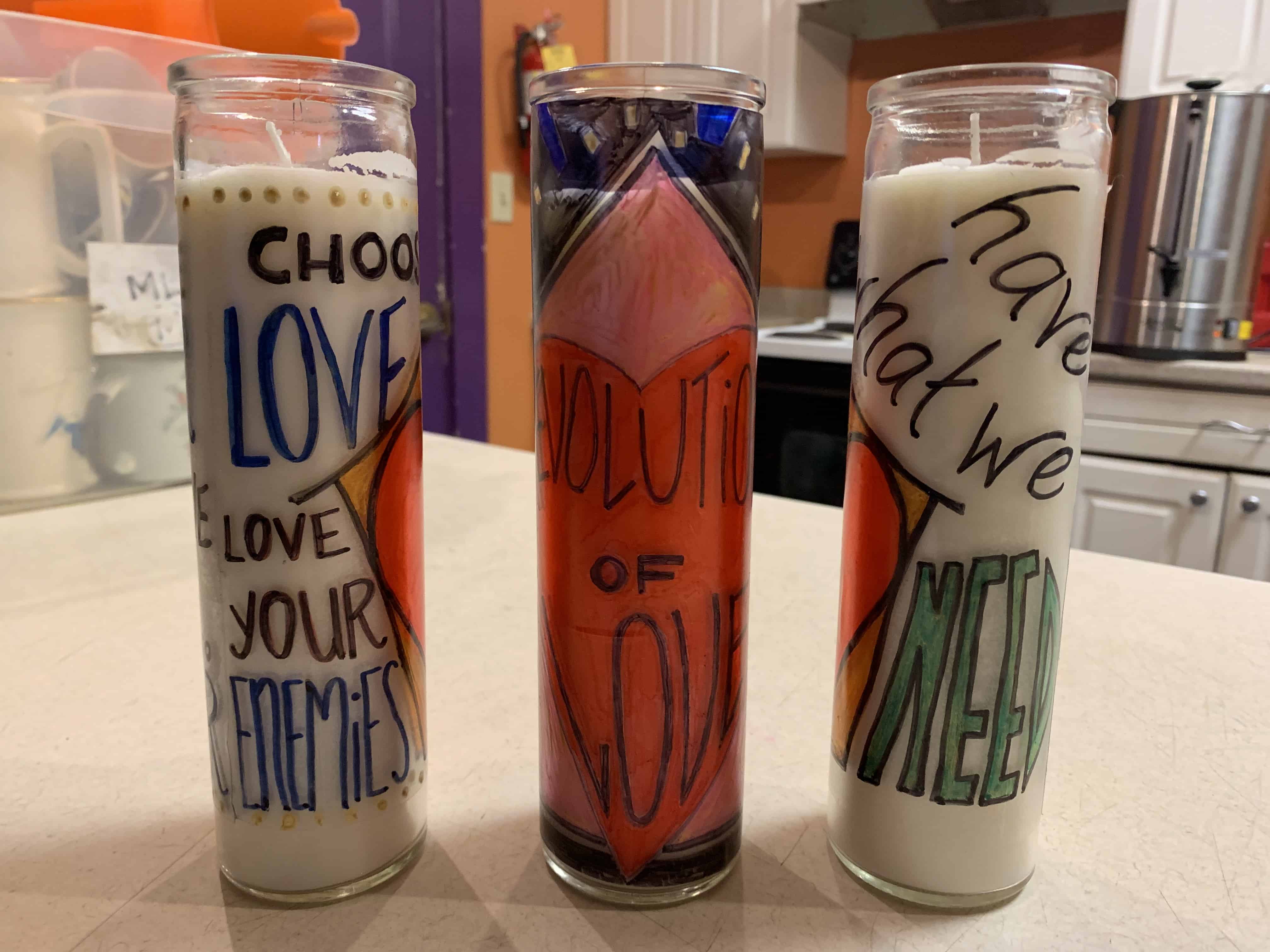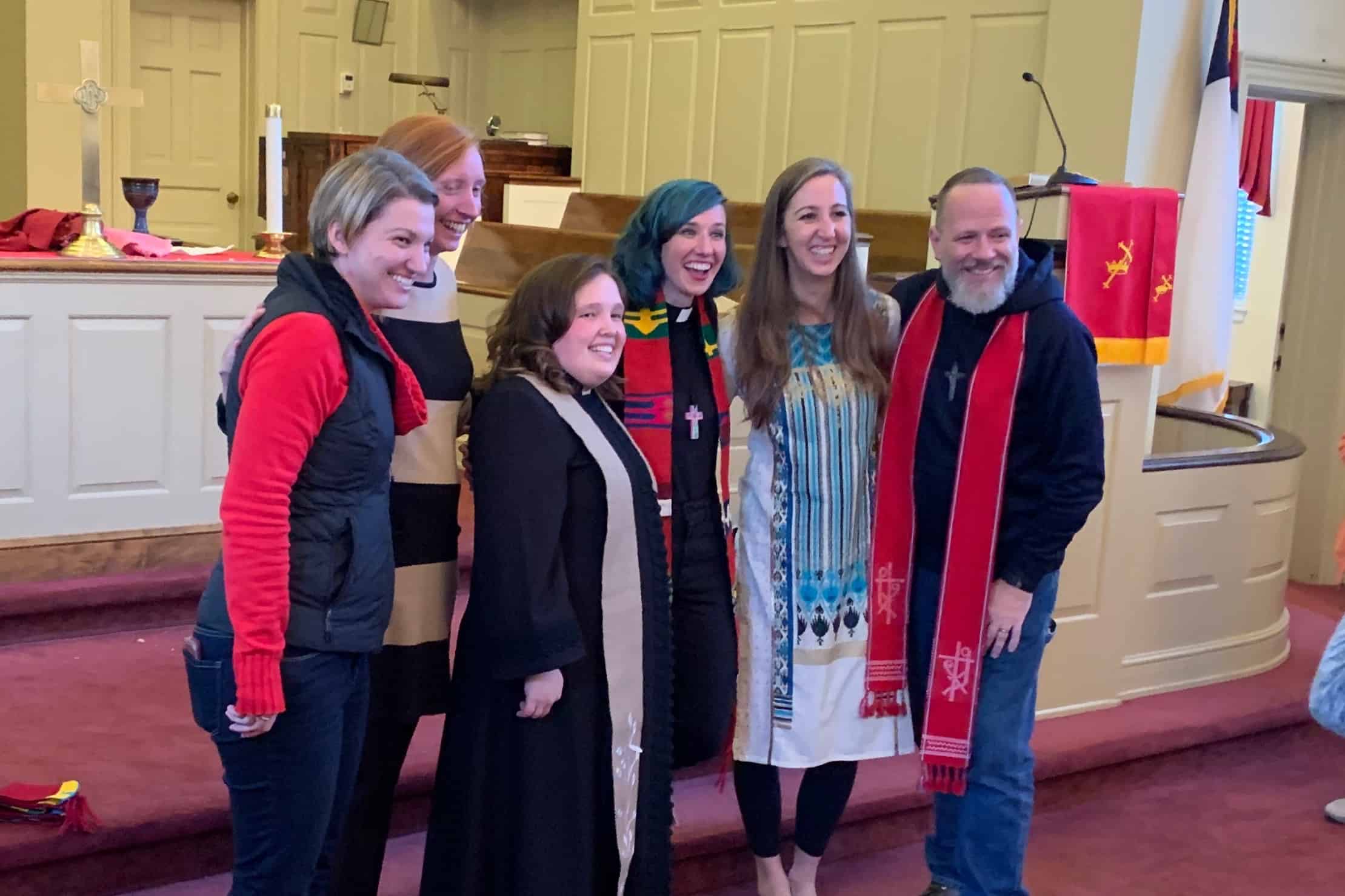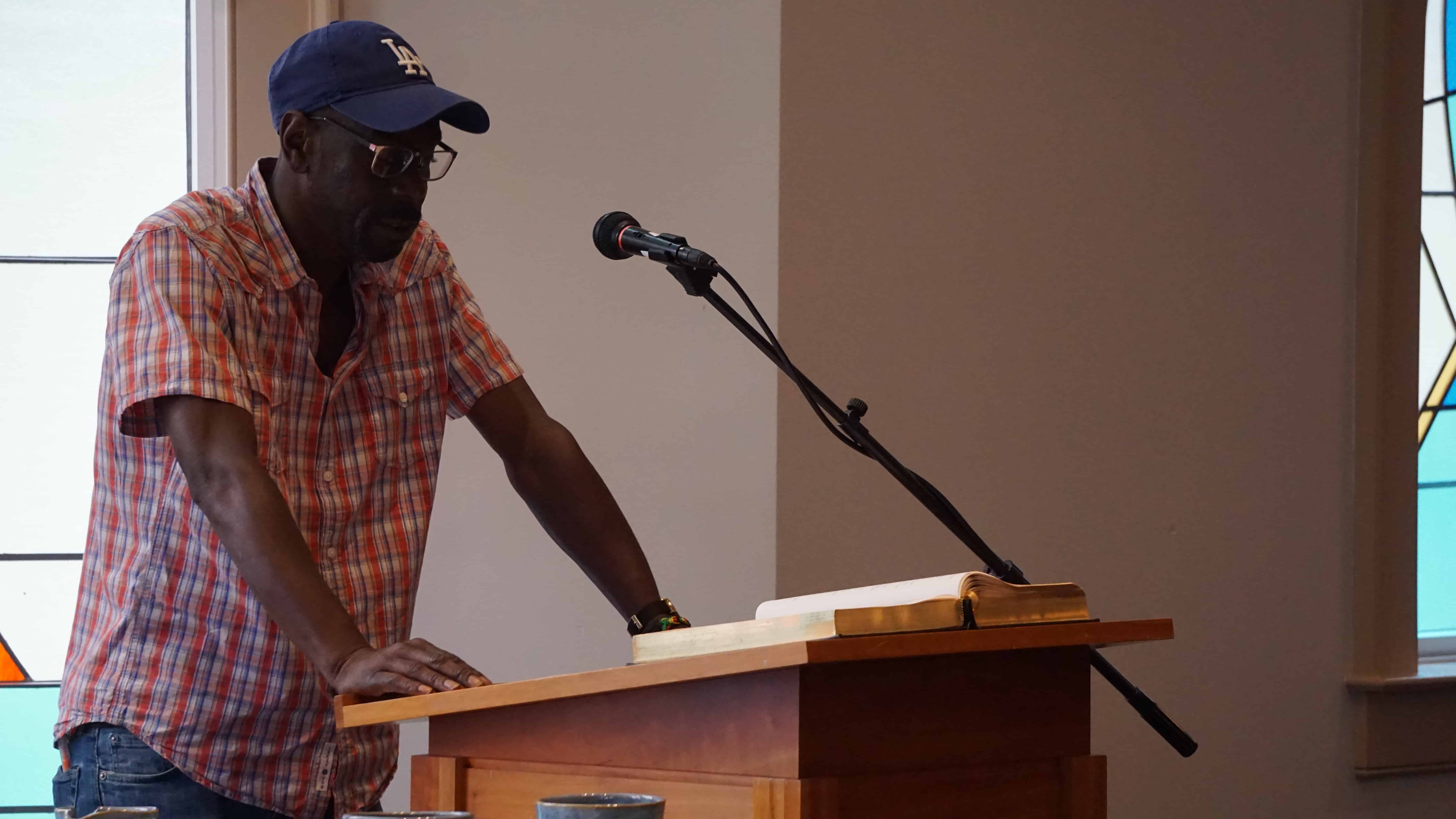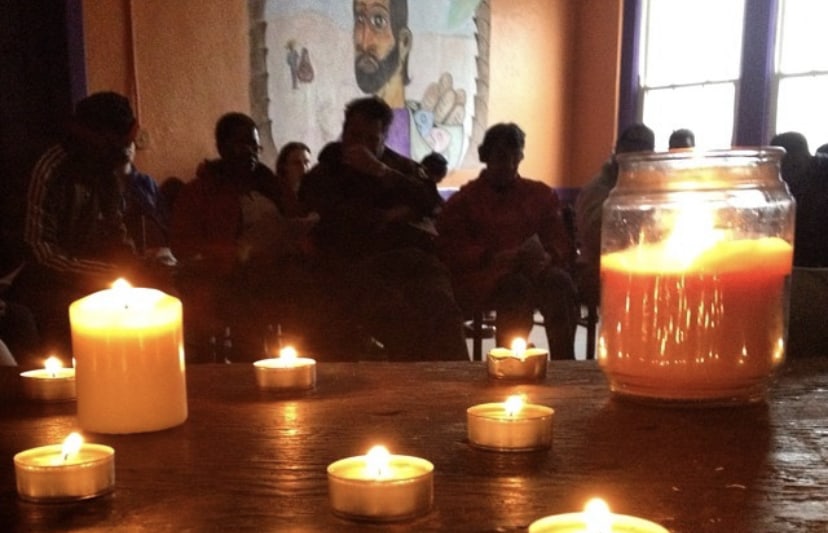by Holly Reimer
Romans 5:12-19
Reflection—v. 16 ‘but the free gift following many trespasses brings justification.’
God’s gift of grace is not part of a transaction, wherein we are to offer God a sacrifice, some flowers, or buy God something, as recompense for our wrongdoings. There is nothing I can do that will make me worthy. Only God can justify us, and God does, through Christ Jesus. This is the free gift that this passage speaks of and what we experience in our lives with Jesus Christ. I am going to make mistakes and mess up. The justification that God offers comes even after I do all of the things that I believe should have excluded me. We live with a lot of shame and self-loathing, in part because we are told that who we are and what we do supersedes our belovedness. ‘If only they really knew’ is what I so often tell myself in moments of self-loathing and negative self-talk. God knows, and God loves! For the things that we can’t do on our own and for ourselves, God says, ‘Here, take my hand.’ This is the true grace and love we get to experience in Christ Jesus. God does not desire us to live in shame, crushed by guilt or self-loathing. God’s free gift (yep, really free!) is more than anything we have ever experienced on this earth.
Prayer: Help us, O Lord, live into the free gift of your love and mercy that brings us closer to you.
Thursday, March 5th
By Holly Reimer
Psalm 32
Reflection—v. 3 ‘While I kept silence, my body wasted away through my groaning all day long.’
Certain kinds of silence can make us unhealthy. Staying silent can keep us so focused on whatever we are trying to hide that we can’t focus on anything or anyone else. We brood. We stew. It leads us to violence and anger and hatred. Self-loathing is far too common for many of us, when we keep silent about transgressions or fears of our own goodness. Self-loathing festers to the point where we become so depressed that we feel paralyzed. I love that the psalms can be a place where the psalmists feel that they can air grievances with God. They don’t have to keep silent, but can speak up in a way that brings freedom, a stronger relationship, and the understanding of trust. Destructive silence not only keeps us in bondage but imprisons those with whom we engage. It severs the potential for healthy relationships and the possibility of respecting both ourselves and the other as beloved and capable of receiving both the good and bad of living in relationship.
Prayer Lord, help us to be better communicators with you and with others.
Wednesday, March 4th
By: Holly Reimer
Romans 5:12-19
Reflection—v. 15 ‘The free gift in the grace of the one man, Jesus Christ.’
We talk a lot about the differences between transactional and transformational relationships in our community. Transactional relationships mirror the exchange of goods and services when we make purchases, and are tit-for-tat interactions—you scratch my back, and I’ll scratch yours. We expect to receive some kind of goods or services from someone if we do something for them. This is not who God is. This is not why Jesus came. Jesus desires to be in a relationship with us, a relationship that transforms our entire being. This is a gift that comes through Christ, who speaks so radically against the ways of the world and encourages us to be countercultural. Transformation is difficult- -it is a process. It is the difference between buying someone a meal and sending them on their way, and sitting down with someone to eat a meal together. One is a transaction the other invites relationship-forming transformation. Such a transformation honors the belovedness of our creation and God’s desire for wellness and wholeness for each person—not because we have ‘earned’ it, but because, as the text reminds us, it is a ‘free grace.’ Love for the individual in the relationship is at the core of such a gracious relationship and thus speaks of the transformation that happens within us. In God’s grace, we are changed.
Prayer: May we continue to be challenged into transformational relationships.
Tuesday, March 3rd
By: Holly Reimer
Psalm 32
Reflection—v. 1 ‘The one whose wrongdoing is forgiven, whose sin is covered over, is truly happy!’
I am a perfectionist and a people-pleaser. I want to do everything correctly the first time and make sure no one is ever displeased with me. It doesn’t matter how many times I am told that I can’t be perfect and I won’t always get it right, I am determined to be the best and never make any mistakes. Then, of course, there is the shame when I don’t get it right. Shame is one of those things that follows us, particularly in faith and in the church, when we speak of sinfulness. God does not want us to live in shame, beat-down because we are inevitably going to get it wrong. God wants us to be happy and well. True happiness is not never making mistakes or ensuring that no one is ever displeased. True happiness is in finding peace within ourselves and knowing that we don’t have to get it ‘right’ all the time. We often have conversations about relationships at Mercy being ‘mess-up safe.’ In other words, we will inevitably make someone mad, hurt someone’s feelings, or just generally mess up. However, as with God, there can be forgiveness and healing when those things do occur. Knowing that I have a space where it is safe when I mess up—because yes, even pastors get it wrong—brings me joy. It’s not that everyone is happy with me all the time, because they are not. It isn’t because I’ve not made a mistake; I have. It is because there is a process where I acknowledge that I will not always get it right and I will not always make folks happy. It is a process of being my best self. And that is true joy.
Prayer: Lord, help us to see that true happiness comes from you, and is free from guilt or shame.
Monday, March 2nd
By: Holly Reimer
Genesis 2:15-17, 3:1-7
Reflection—v. 1 ‘Did God really say…’
All of the passages from this week’s lectionary readings speak highly of God’s great love for us, and the ways that God is in relationship with us. Relationships, whether we like them or not, are a part of our everyday lives—we are in relationship with God, others, and ourselves. When we are in particularly healthy relationships, we are in good communication, actually listening and speaking with one another. Healthy relationships are free from gossip. They are also free from triangulation, where rather than engaging an individual directly, we pull someone else into the conversation. This is the case in the conversation between the serpent and the woman regarding God’s relationship with her. God is absent from the conversation. Yes, they are talking about God, but God is not invited into the conversation. God’s words have been perverted and manipulated in such a way that has excluded God, robbing the serpent and the woman of a potentially rich engagement with God.
Prayer: Help us, O Lord, to communicate well with one another and with you. Make us mindful of the ways that we can be better communicators.
Sunday, March 1st
By: Holly Reimer
Genesis 2:15-17, 3:1-7
Reflection—v.17 ‘but don’t eat from the tree of the knowledge of good and evil…’
Restrictions and rules are incredibly frustrating. Boundaries can make us feel trapped and restless. We live in a world of constraints, many of which, for good reasons, can have negative connotations. We desire to build walls and put up fences that keep some of us in power and separate others from good relationships. But healthy boundaries are not always a bad thing. God has created boundaries for human beings, not because of God’s deep desire to control and manipulate us but because of God’s great love for humankind. The image that comes to mind is that of a parent and child or a teacher and a student, where the learner is asked not to do something–like touch a hot stove. To the child, this can feel oppressive and limiting, whereas to the parent or teacher, it is a measure of love and care. We have a beloved member of our community who often encourages us to be obedient to God and to one another in our space. By living within the boundaries of our community, what that beloved community member might call ‘obedience,’ we all have a space where we can feel safe and loved. Being obedient in our community is not about restrictions but freedom. This is the work of God, where we can reclaim something that perhaps we’ve always seen as negative and see freedom and wholeness instead.
Prayer Thank you God for boundaries that keep us safe and promote wellness
Saturday, February 29th
By: Rod Reimer
Isaiah 58:1-12
Reflection—v. 6 ‘loose the chains of injustice and untie the cords of the yoke’
Dr. Martin Luther King declared that the ‘ultimate measure’ of a human being is not where we stand ‘in moments of comfort and convenience’ but where we stand ‘at times of challenge and controversy.’ Those words are so very true and appropriate to all of us today. Many of my brothers and sisters who are on the street find themselves weighed down by the chains of injustice, tied to a yoke of oppression, seemingly forgotten, left to wander without shelter, hungry, thirsty, and left to feel unloved. In Isaiah 58, the prophet Isaiah ben Amoz tells us not to turn away from our own ‘flesh and blood,’ for we are all brothers and sisters created by God. We are to ‘loose the chains of injustice and untie the cords of the yoke, to set the oppressed free…share [our] food with the hungry and to provide the poor wanderer with shelter…to clothe the naked.’ In doing these things, our light ‘will break forth like the dawn’ and our light ‘will rise in the darkness.’ The great news is that we do not have to do this alone, for ‘righteousness will go before you and the glory of the Lord will be our rear guard.’ When we call, the Lord will answer. When we cry for help, God will say, ‘Here am I.’ The Lord will guide us always and will satisfy our needs in a ‘sun-scorched land.’ I give thanks for what I am experiencing at Mercy with all of my brothers and sisters, and I pray that all of us may follow the prophet Isaiah’s directions always.
Prayer Lord, help your people to be a light in these times of challenge and controversy
Friday, February 28th
By: Bethany Apelquist
Matthew 6:1-6, 16-21
Reflection – v.5 ‘whenever you pray’
If you have ever visited Mercy during prayer time, you have probably felt the presence of the Spirit and felt the warmth of community. You may have sensed some peace in the bustle of a busy city. As we all squeeze into the small basement church, always making room for one more person to join, there is a sense that this thing we do together— gathering to pray—is important, even sacred. I think that this is the kind of prayer that Matthew is talking about. I don’t think Matthew is arguing that praying together or in front of others is wrong. Rather, he believes that prayer is a holy moment, a moment in which we stand just a bit closer to God–a moment of refuge in the midst of the hardships of our lives. Prayer isn’t about one person being the center of attention. Prayer is about the community holding each person as equally important to God and holding God’s presence in the center of our lives together. Prayer is a moment that makes room for one more person to join. Prayer is a moment in which together we hold the joys and the concerns of our community in our hearts, knowing that God is close to us, that God cares for the things we care about. So this Lent may we make room for prayer in our lives. May we remember that God is present with us, and may we remember that we aren’t called to do this alone, but that we are called to do this in beloved community.
Prayer Thank you God for being present with us and for the joys of community.
Thursday, February 27th
By: Ivan Cooley
Matthew 6:1-6, 16-21
Reflection—v. 5 ‘do not be like the hypocrites’
Usually when I come home I turn on the TV. Until the other day when I turned on the TV and it was dead. I panicked, because what was I going to do without my TV?! When I get on the train, I guarantee that 60-70% of the people around me are looking at the screen on their phones. I’m amazed at how many people are addicted to their screens. But then when my TV went out, I had to admit that I was addicted to a screen too! But then I started playing my music. Since I had gotten the TV I wasn’t listening to music near as much. I couldn’t concentrate on the music because I wanted to watch TV. The next day I was downtown walking and there on the sidewalk were some speakers—I took them home, plugged them into my phone—it worked! The music was sounding good! Oh, I see what I’ve been missing now! At first, when the TV went out, in the quiet, I started thinking thoughts that I didn’t want to, but then after a while, my mind let that stuff go, and I noticed that it wasn’t that bad without the TV. I had to give up the TV. It wasn’t my choice, but I believe that God leads us. When I could hear my music again, I began to hear other things. I could hear good things in my head for a minute, and then even when I turned the music off, I knew I was going to be alright and my mind went to a different place. What I thought was going to be a bad thing, God showed me, might be what I needed. Peace is a good thing.
Prayer Lord, sometimes I’m a hypocrite; in your mercy, help me to look at others with the same love you look at me.
Ash Wednesday, February 26th
By: Chad Hyatt
Matthew 6:1-6, 16-21
Reflection—v. 1, ‘Beware of practicing your righteousness’
I’m a pretty weird guy—I really love Ash Wednesday and Lent. I love the smells and bells when we gather with other neighborhood churches. I love the imposition of ashes and the chalky black crosses that paint our foreheads. I love coming to the table to share with one another in the bread and wine that is the body and blood of Jesus. And I really, really love the theme of penance. It’s old-fashioned and cringe-worthy enough of a word to make us ill at ease—and yet radical enough to invite us to serious transformation. Francis of Assisi often described himself as just a penitent. Think about it: one of the most beloved holy people in all of history thought of himself as living a life of constant turning from sin. That makes me feel that real holiness is actually about practicing it— which, for me at least, would have to include a lot of messing it up along the way—and not about some idealized version of being human that is pretty much out of our reach. But I wonder if we haven’t allowed penance to become too church-y. We might come closer to what Jesus was talking about if our repentance was less religious and more real world, less bourgeois aspirational ‘spiritual growth’ and more righting and repairing our relationships with other human beings and creation. Jesus commends alms-giving, prayer, and fasting not as status-driven virtue-signaling but as ways to widen the capacity of our hearts for doing right by our neighbor and realizing the kingdom of heaven in the here and now. I think that’s a kind of weirdness our world could use a little more of.
Prayer Jesus, help us always and ever to turn toward you—in our streets as much as in our pews.

